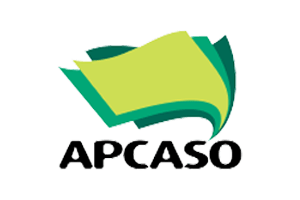The fifth session of the CELG Webinar series was held last March 15, 2024. The session was held for chosen organizations to share the initial outputs and results of their efforts to strengthen the capacity of identified tuberculosis (TB) last mile population (LMPs) groups to engage in pandemic governance (including prevention and preparation) and health systems strengthening.
Three organizations presented their work with identified LMPs:
- Jaringan Indonesia Positif (Indonesia) , represented by Khresna Wahyu, worked with prisoners and former prisoners.
- Civil Society Movement Against Tuberculosis (Sierra Leone), represented by Paul Brima Bangura, worked with persons with disabilities and slum communities.
- Janna Health Foundation (Nigeria), represented by Paul Balogun, worked with nomads, internally displaced populations, and miners.
Similar to the presented initial plans in the previous webinar, the activities included in the 3 organization’s projects were focused on the following strategies:
- Developing organizational capacity of civil society organizations to engage with LMPs for improving health services, particularly tuberculosis, and pandemic governance;
- Identifying and assessing the needs, resources, and capacities of LMPs related to engaging with institutions concerned with health service delivery and pandemic governance;
- LMP capacity-building through developing health information and education campaigns/lectures on TB and pandemic prevention, preparedness, and response (PPPR), facilitating group organizing including strategic and action planning, facilitating trainings on representation and advocacy; and,
- Facilitating the establishment/strengthening of institutional platforms , particularly that of government, for civil society engagement to accommodate the needs and concerns of LMPs through stakeholder mapping, advocacy campaigns for LMP engagement in health and pandemic governance, linkage-building with appropriate agencies, and participatory planning processes for enhancing community engagement.
Based on each country’s assessment of both the identified LMP and of the related stakeholders/key institutions for community engagement, the activities implemented ranged in focus: from initial tuberculosis-related service delivery strengthening to pandemic governance structure engineering. But in general, the aim of the presented efforts was directed at facilitating the engagement of LMPs in decision-making structures.
The implementation of the projects highlighted key challenges that the LMPs face placing them at a much more vulnerable position to getting ill and to neglect in representation, particularly during the height of the COVID-19 pandemic. Some of the challenges are specific to some LMPs such as communication barriers for persons with communication and visual disabilities, language barriers for cultural minorities, stigma against prisoners and former prisoners, and geographical barriers such as roads in the case of nomads, refugees, and slum dwellers.
Shared/common challenges affecting the LMPs include the absence of policy platforms and structures for civil society engagement in pandemic and health service governance. This has caused difficulties in coordination with stakeholders particularly government institutions leading to a poor representation in decision-making processes and inadequate communication channels.
The various projects highlighted initial results in 2 key areas:
- LMP-related outcomes included increased knowledge about tuberculosis and how to access health services, increased ability to communicate needs with stakeholders especially in government platforms, and organization of groups to provide support for the community/LMP.
- Institutional changes, especially within governments, to accommodate the engagement of LMPs and their organized groups, including accreditation and establishment of help desks for some groups.
After the country presentations, Dr. Jeremiah Alejo of CELG presented a summary of the reports and provided an overview of the following session’s objective which was to facilitate the development of a guidebook for capacitating LMPs to engage in health and pandemic governance.
